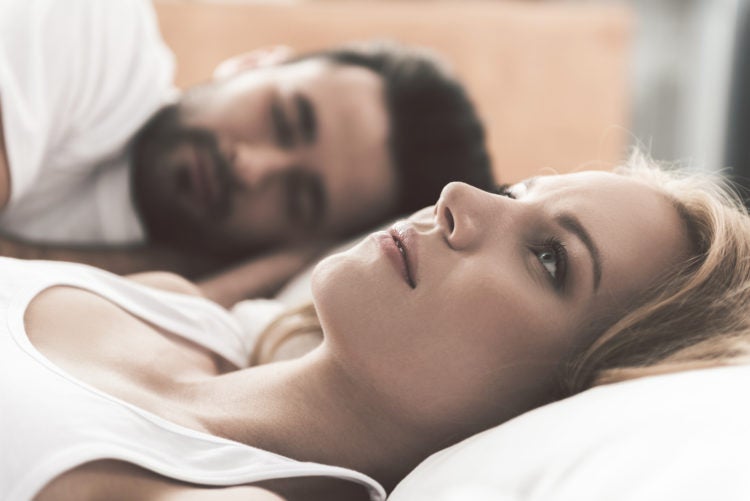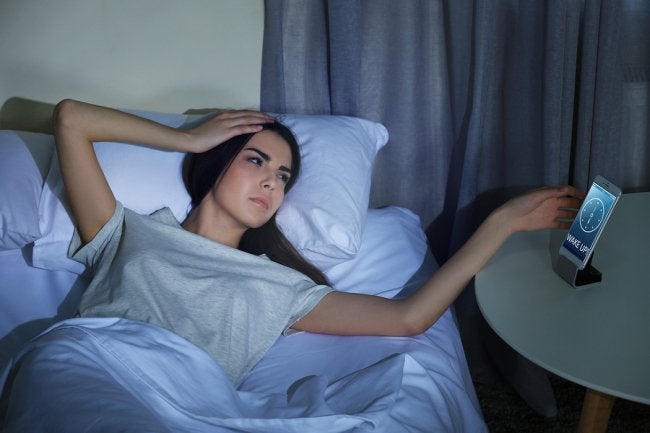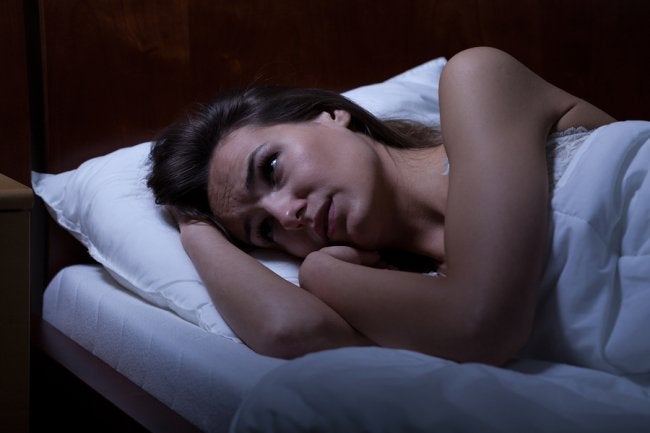-
Tired of Nighttime Bathroom Trips? Talk to Your Urologist About Nocturia

If you wake up two or more times each night to urinate, your urologist may diagnose you with nocturia. Nocturia, also called nocturnal polyuria, might not be dangerous by itself, but it may be caused by an underlying medical condition that needs to be treated. It’s also important to talk to a urologist about nocturia because your nighttime bathroom trips can lead to sleep deprivation, which can cause other health complications.
Your Symptoms
The main sign of nocturia is awakening multiple times at night to urinate. However, you may have other symptoms that may speak to the possible cause of nocturia. To aid in the diagnostic process, it’s important to talk about all of the changes you’ve seen in your health with the urologist. Additionally, let the doctor know if another physician has recently diagnosed you with another condition. The urologist will also need to know how long you’ve been experiencing nocturia, and whether there have been any changes in your lifestyle recently.
The Possible Causes
Two of the most common causes of nocturia are bladder infections and urinary tract infections (UTIs). Treatment involves a course of antibiotics to clear up the bacterial infection. Other medical conditions that can cause nocturia include the following:
- Bladder prolapse
- Diabetes
- Kidney infection
- Tumors in the pelvic region
- Prostate enlargement
- Edema
- Obstructive sleep apnea
- Neurological diseases (Parkinson’s and multiple sclerosis)
Nocturia can also be caused by lifestyle issues. Your urologist will ask whether you consume a lot of fluids in the evening. Alcohol and caffeinated beverages in particular can make you wake up frequently to urinate.
Your Treatment Plan
After reviewing your symptoms, the doctor may want to run a few tests. You may have a urinalysis, blood sugar test, imaging test, complete blood count, or fluid deprivation test. Once the urologist knows exactly what’s causing your nocturia, he or she can develop a treatment plan. If underlying problems like Parkinson’s disease or diabetes are causing the problem, then you may be referred to another specialist.
Nocturia is one of the many conditions our urologists treat here at Urology Associates, P.C. We can figure out what’s contributing to your problem, and we’ll put together a personalized treatment plan that’s appropriate for you. Call (855) 901-1338 to schedule a consultation at one of our urology clinics in Tennessee.
-
Getting the Facts About Nocturia

Do you find yourself frequently waking up during the night to go to the bathroom? You could have a problem known as nocturia, which is characterized by the disruption of the normal sleep cycle due to the need to urinate more than once during the night. This urology issue can lead to other health problems associated with chronic sleep deprivation. Fortunately, a urologist can determine the underlying causes and recommend appropriate treatment options.
Causes
Some of the potential causes of nocturia are sex-specific. Women may suffer from nocturia because of childbirth, menopause, or pelvic organ prolapse (POP). Men may develop this problem because of benign prostatic hyperplasia (BPH) or an enlarged prostate. The causes that could affect a patient of either sex include the excessive use of caffeine or alcohol, or drinking any fluids to excess before bedtime. Uncontrolled diabetes, diuretic medications, sleeping disorders, and bladder inflammation are other possible causes. Some patients may have low nocturnal bladder capacity due to interstitial cystitis, bladder obstruction, or recurrent urinary tract infections (UTIs).
Diagnostics
When you visit a urologist to discuss your symptoms, they may ask you to keep a fluid and voiding record for a few days. You’ll make notes about the time and amount of your fluid intake, medication usage, caffeine and alcohol usage, and voiding behaviors. The urologist might also request medical tests such as a urinalysis.
Treatments
Treating nocturia may involve a combination of medical interventions and lifestyle changes . Your doctor might recommend medications to help you manage your symptoms. If you have an underlying medical condition that is causing nocturia, then treating this medical condition can help relieve your symptoms. You might also consider making lifestyle changes, such as limiting your fluid intake in the evening and adjusting your schedule of diuretic medications. You might also consider taking naps in the afternoon, wearing compression stockings, and elevating your legs.
Urology Associates, P.C. connects patients with urology issues with effective treatment options to improve quality of life. Nocturia, incontinence, and sexual dysfunction are just a few of the conditions we treat. Call (855) 901-1338 to set up an appointment with our urology team in Tenenssee.
-
Living with Nocturia

Do you wake up several times each night to go to the bathroom? Do you struggle with daytime fatigue because of your nighttime bathroom visits? You could be suffering from nocturia , which is a condition commonly associated with advanced age. It’s important to speak with a urologist about your urinary problem because it may signal an underlying medical condition that requires treatment. Receiving urology care can also help you achieve restful sleep at night.
Evaluating the Underlying Cause
When you see a urologist to discuss your urinary issues, he or she will try to determine the underlying cause before recommending an appropriate treatment plan. Sometimes, nocturia is caused by lifestyle issues, but often it’s the result of medical conditions such as untreated diabetes, congestive heart failure, sleeping disorders, or lower extremity edema. It can also be the result of other urologic conditions such as bladder obstruction, overactive bladder, a urinary tract infection (UTI), or benign prostatic hyperplasia, also known as an enlarged prostate. If one of these conditions is to blame for your symptoms, your doctor can suggest options for treating the underlying cause to alleviate your urologic symptoms.
Considering Medications
Your treatment options may include medications . Some of the most common medications prescribed for nocturia include anticholinergic drugs like darifenacin, oxybutynin, or tolterodine. These drugs can relax the bladder to prevent bladder spasms and reduce the risk of overactive bladder. Before taking any new medications, be sure to tell your urologist about any drugs you may already be using.
Making Lifestyle Changes
In addition to medical management, your urologist may recommend making simple lifestyle changes to help you sleep through the night. Patients with nocturia should be careful to limit their fluid intake in the evening hours, especially caffeinated and alcoholic beverages. Elevation of the legs throughout the day can alleviate the accumulation of fluid. You might also need to adjust medications you may already be taking, such as diuretics. Taking diuretics earlier in the day can help prevent nighttime bathroom visits.
With help from Urology Associates, P.C., you can successfully manage nocturia and finally get a good night’s sleep. Our urology team in Tennessee also works with patients who suffer from sexual dysfunction, incontinence, and urinary tract infections. Call our office today at (855) 901-1338 to request a confidential consult.
Recent Posts
categories
- Uncategorized
- Bladder Cancer
- Women's Sexual Health
- MonaLisa Touch
- Urology
- Urologist
- Erectile Dysfunction
- Kidney Cancer
- Incontinence
- Prostate
- MonaLisa Touch Laser Treatment
- Kidney Stones
- Urinary Tract Infections
- Event
- Sexual Dysfunction
- Testicular Cancer
- Prostate Cancer
- Urology Surgery Center
- urinary incontinence
- vaginismus
- noncoital pain disorder
- Hypoactive Sexual Desire Disorder
- Infographic
- provenge
- Xofigo
- robotic surgery
- hormone replacement
- diabetes
- renal cell carcinoma
- pelvic pain
- hematuria
- sexual health
- chronic testicular pain
- premature ejaculation
- Men's Health Clinic
- Dr. Melvin Seard
- Interstitial Cystitis
- vasectomy
- overactive bladder
- vaginal atrophy
- nocturia
- bladder infections
- urethral strictures
- Acute Epididymitis
- low sex drive
- circumcision
- pelvic floor dysfunction
- Peyronie's Disease
- prostatitis
- female sexual dysfunction
- varicocele
- difficult urination
- low libido
- PSA levels
- male fertility
- penile prosthesis
- prostatic intraepithelial neoplasia
- male infertility
- estrogen levels
- nurse navigator
- stress urinary incontinence
- vaginal yeast infection
- elevated psa
- painful sex
- adult circumcision
- epididymitis
- OAB
- kidney infection
- penile cancer
- pelvic organ prolapse
- Vasectomy Reversal
- bone health
- cystectomies
- clinical trials
- bloody urine
- Advanced Therapeutic Center
- WISH MedSpa
- neurogenic bladder
- WISH Team
- prostate biopsies
- BPH
- fecal incontinence
- lithotripsy
- osteoporosis
- kidney cysts
